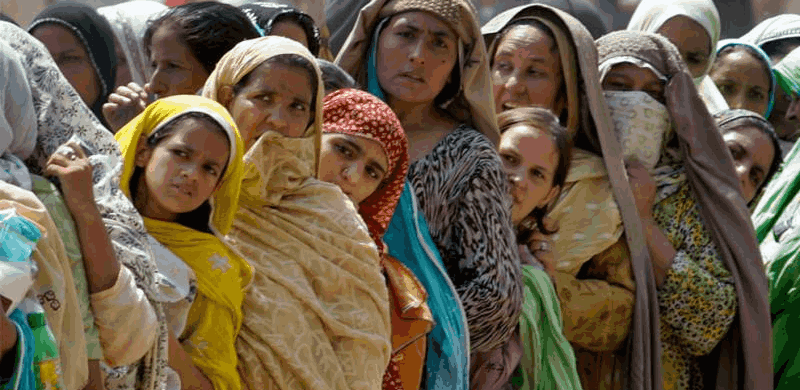
We used to hear about the rhetoric of education for women regarding their self-independence as 'Baiti bachao, baiti parhao' is a well-known slogan in India. Here in Pakistan, we also advocate for the education of women masses but is this enough to give a pen and book in the hands of women?
There are many women who have no inclination towards studies. There are many, who are not able to get good grades and jobs. Limited jobs and institutions can’t give the independence of women who constitutes half of the population.
In all situations, women become dependent on their husbands, fathers and brothers. Women themselves believe in this mythical concept that if they had failed to succeed in studies they would be unable to achieve anything in their lives. This approach is utterly wrong which has heavily prevailed in our society where women lag in every field.
Weaknesses in women’s body are highly exaggerated by the so-called religious and literary personalities, in the face of plain misogyny. They say women's bodies are not made for heavy work by God. Urdu literature is also teeming with the examples that radiate the delicacy and frailty of the female body and this is very unfortunate that our vernacular literature failed to adapt itself according to modern needs.
It is still entangled in the 18th century and this stagnancy is visible in our drama industry where only a patient, frail, innocent, delicate and miserable girl can be a heroine. These notions add complexities among the masses which compel women to accept that they are naturally inferior to men and if they want to be good women, they should be patient and submissive.
This approach should be discouraged by creating nationwide awareness from individuals to the official level. The confidence of women could be uplifted by creating awareness about the differences between both genders. It is a common view that after academic failure men become financially independent by doing some small-scale business but among women it’s not the same. There is no doubt that women are far better in management than men.
Women can run small scale businesses even more efficiently like hotels, farming, fishing, etc. Bangladesh eradicated poverty on a larger scale by training women about aqua-culturing. This approach on one hand dilutes the stress of jobs on state and on the other side uplift the downtrodden economy.
In Pakistan, there is a dire need to appreciate women in this way, it will enhance the living standard of the existing populace. The main fault in the existing system is that there are few women in parliament who are actually involved in decision making for women empowerment. These decisions are made by men who are unaware of the problems of women in practical life. So women in parliament should come on the surface to cope with this issue. Gender discrimination is a worldwide issue and it is in severe condition in Pakistan.
There are many women who have no inclination towards studies. There are many, who are not able to get good grades and jobs. Limited jobs and institutions can’t give the independence of women who constitutes half of the population.
In all situations, women become dependent on their husbands, fathers and brothers. Women themselves believe in this mythical concept that if they had failed to succeed in studies they would be unable to achieve anything in their lives. This approach is utterly wrong which has heavily prevailed in our society where women lag in every field.
Weaknesses in women’s body are highly exaggerated by the so-called religious and literary personalities, in the face of plain misogyny. They say women's bodies are not made for heavy work by God. Urdu literature is also teeming with the examples that radiate the delicacy and frailty of the female body and this is very unfortunate that our vernacular literature failed to adapt itself according to modern needs.
It is still entangled in the 18th century and this stagnancy is visible in our drama industry where only a patient, frail, innocent, delicate and miserable girl can be a heroine. These notions add complexities among the masses which compel women to accept that they are naturally inferior to men and if they want to be good women, they should be patient and submissive.
This approach should be discouraged by creating nationwide awareness from individuals to the official level. The confidence of women could be uplifted by creating awareness about the differences between both genders. It is a common view that after academic failure men become financially independent by doing some small-scale business but among women it’s not the same. There is no doubt that women are far better in management than men.
Women can run small scale businesses even more efficiently like hotels, farming, fishing, etc. Bangladesh eradicated poverty on a larger scale by training women about aqua-culturing. This approach on one hand dilutes the stress of jobs on state and on the other side uplift the downtrodden economy.
In Pakistan, there is a dire need to appreciate women in this way, it will enhance the living standard of the existing populace. The main fault in the existing system is that there are few women in parliament who are actually involved in decision making for women empowerment. These decisions are made by men who are unaware of the problems of women in practical life. So women in parliament should come on the surface to cope with this issue. Gender discrimination is a worldwide issue and it is in severe condition in Pakistan.
